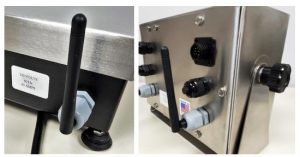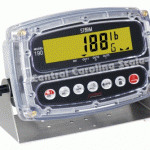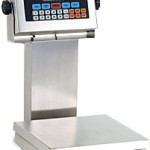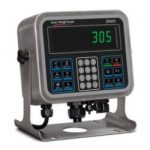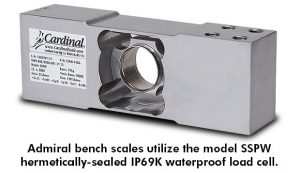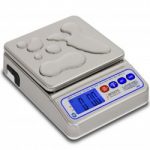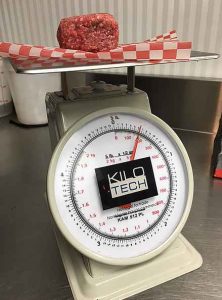There are many reasons to use digital scales when brewing beer.
It can be for a microbrewery or an international brand. Consistency is first and foremost.
If you created a beer with a special taste, you want to make sure you can recreate that taste in every bottle. If ingredients are not measured properly, the taste can be unpleasant, and the alcohol content (typically referred to as alcohol by volume or ABV) can change.
Specific quantities can allow even new employees who are not familiar with a recipe to recreate the product with ease. A formula can also be tweaked more easily. Weight quantities also make recording easier. Recipes should always be written down with the exact amounts used during brewing. That helps ensure good batches get reproduced, and it can also allow brewers to find out why a recipe did not work.
Measuring ingredients can also help minimize waste by ensuring the right amount of ingredients are used in correct proportions. For home and microbreweries, it can be particularly tricky to scale the right amount of yeast for a first batch, so precision is very important. Even small batches can be ruined by imprecise recipes, which spills all the ingredients, time, money and effort down the drain.
Scales can also help during the carbonation process, depending on your method of choice. Carbonation can be added to beer in two ways: natural carbonation or forced carbonation. Natural carbonation results during the fermentation process of beer; when yeast digests sugar, alcohol and CO2 are the byproducts. This means brewers must carefully measure the sugar and yeast in order to create the proper amount of carbonation.
Forced carbonation is putting beer (post fermentation) in a container and pumping it with CO2 directly. Nowadays, this is the preferred method, particularly for large quantities.
It takes less time to carbonate a batch and forced carbonation allows beer to sit longer, but naturally carbonated beer is smoother and is considered more flavorful. In the end, it comes down to personal preference and equipment availability.
Scales are also used during bottling and to fill cans or kegs. Before fermentation, wort (unfermented beer) is made by boiling the ingredients together. Because some of the water can boil away, it’s important to add more water as need during the fermentation process. Monitoring a keg’s weight can help brewers ensure there is always enough water, and that the beer is not losing carbonation.
The weight of bottles (and their thickness) can also help ensure that carbonation, when combined with temperature and agitation, does not create too much pressure, which could break the glass bottles.
Why measure by weight and not by volume?
Using volume might seem more intuitive since beer is liquid. However, measuring by volume is not as accurate as measuring by mass. The shape of ingredients can dictate how much fits in a cup, while density and temperature can affect a liquid’s volume. Beer goes through numerous processes that can affect volume, including boiling, fermentation, and carbonation. Mass does not have to take these factors into account. That additional precision can improve the beer’s taste and help brewers tweak their recipe to perfection.
Even small balances can also measure a wider range. Take your usual measuring cups and spoons, where you often need multiple items to measure various ingredients. With a scale, you can simply put the ingredients in a container (tared, of course) and fill it until you have the right weight.
What kind of scale do you need for brewing?
You must establish your level of production, and the weight range you will need. If a brewery focuses on seasonal flavors or taste experiments, they will weigh smaller quantities than a brewery focusing on a single product.
Depending on the size of your operation, you’re most likely going to need more than one scale. Usually, micro or home breweries use a compact or precision balance to measure ingredients such as hops, spices, yeast and other fine items, and a stationary pallet scale or a portable pallet jack scale for batches, kegs, mass production and bottling.
Some breweries also have scales to check grain deliveries and yeast brinks. Larger breweries often have platform scales for larger batches and shipping and can buy more expensive balances that include more features that can save them time.
For large amounts of shipping and receiving, pallet truck scales or pallet weighing beams offer maneuverability and heavy-duty weighing capacities.
For more information on choosing the right digital scales for your brewery call us at (919) 776-7737

